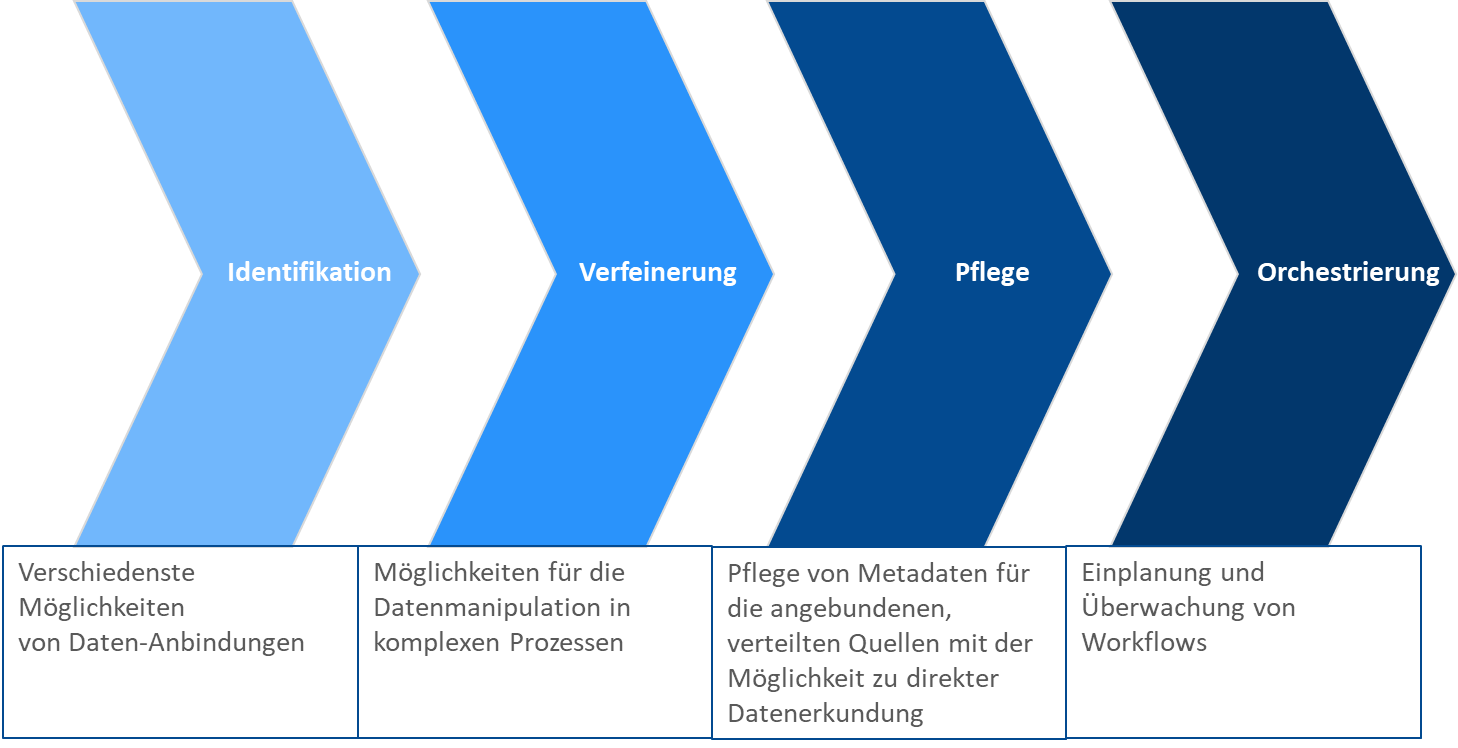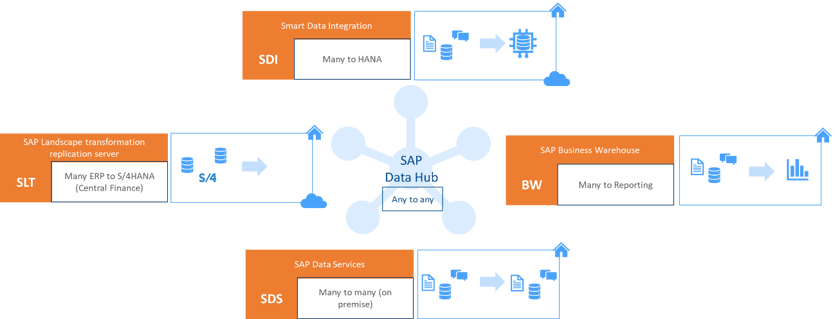A classification
SAP's focus on cloud developments is currently increasing the number of products of varying scope in the SAP portfolio. In the finance and analytics area, for example, SAP Analytics Cloud is now widely known as a very comprehensive reporting, planning and predictive solution, while SAP Analytics Hub is a smaller-scale product. This increasing number of products (in conjunction with the usual renaming of SAP products) sometimes makes it difficult to maintain an overview.
For this reason, I would like to discuss and locate another newcomer to the SAP portfolio here. It is (as expected) a cloud product called (currently) SAP Data Hub (when installed on a non-SAP cloud environment), or SAP Data Intelligence as a service on the SAP Cloud Platform. However, these two products actually belong together and are to be merged in the course of this year - presumably under a new name. In the following, however, I will consistently use the term SAP Data Hub.
The tasks that this product is intended to perform are data identification, refinement, maintenance and orchestration in distributed system landscapes - whether in the cloud or on-premise.
This specifically means the following:

The general claim is also expressed in the architecture. The SAP Data Hub is based on a Kubernetes cluster and mainly uses Docker containers as elements of its pipelines (operators), which leaves nothing to be desired in terms of generality for the time being. An extensive set of ready-made operators demonstrates the power of the architecture even in this early version. The development of custom operators in any programming language is conceivable in the future - whereby the use of Python is currently best integrated as the de facto standard. The connection types already available show the potential:
- SAP OnPremise systems (ABAP system, HANA database, HANA-XS, BW, VORA, Data Services)
- Standard protocols (OData, http, IMAP)
- Databases (Oracle, MySQL, MS SQL)
- Big data (Hadoop)
- Multi-cloud (Microsoft Azure, Amazon Web Services, Google Cloud Platform, SAP Cloud Platform)
In my opinion, it remains to be seen whether the maintenance of metadata for the connected sources can be consistently maintained in reality in such a way that non-IT departments can actually work efficiently with the corresponding data.
Even if there are definitely overlaps with other SAP products such as HANA SDI, SLT, BW or SAP Data Services, the SAP Data Hub does not claim to replace systems, but to enable comprehensive integration, as each of these products is limited in some way.
Overall, the SAP Data Hub shows the potential to bring together the SAP world, which has been quite isolated in the past, with the (naturally distributed) possibilities of the cloud in a structured way.



